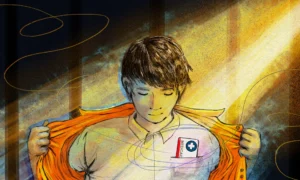Allegations that workers used physical and chemical restraints on residents at two Boys Town programs near its campus headquarters in Omaha, Neb., have led the state to halt referrals to those programs, both of which house youths with severe behavioral and emotional problems.
Nebraska officials said such a hold appears to be unprecedented in the state. Boys Town has submitted corrective action plans, and one of the program directors denied the use of drugs to restrain youths.
The allegations arose after Magellan Health Services, Nebraska’s contractor for handling its Medicaid and Medicare claims, sought a review of the two facilities: the Boys Town Intensive Residential Treatment Center (RTC), used for troubled youth with intense needs, and the Specialized Treatment Group Homes (TGH), which is for youth with less intense but still severe mental health problems.
Those surveys, conducted in May through July, led Magellan to initiate a halt order on Aug. 26. It remains in place while negotiations continue.
Allegations and response
The allegations against the RTC include strapping youths face down on a gurney (using three safety belts) so they could be placed in isolation. Interviews with patients found that youths were injured during this procedure, including a girl nearly choking herself to death with a hair tie while in seclusion, according to the state.
Another violation involved keeping youths in seclusion after an emergency safety situation has ended, contrary to federal law. The RTC was also cited for using chemical restraints (psychotropic medications) 19 times, including using three of the potent drugs on one patient.
The allegations at the TGH include not having medical personnel check youths for injuries immediately after they had been restrained, and not having orders from a nurse or physician to use the physical restraints. There were also documentation breaches at both facilities, the state said.
Boys Town says its policies forbid the use of mechanical restraints, or any device to restrict movement that cannot easily be removed, on any patients.
The RTC program director, Dennis Vollmer, disputed reports of using drugs to calm patients, saying the surveyor misquoted him and that RTC has never used drugs for that purpose. His recommended corrections for the various problems are more staff training, especially on documentation, and for staffers to “continue to provide safe services to kids.”
While the state’s Division of Public Health and its Division of Children and Family Services have approved corrective action plans by Boys Town, Magellan has asked for additional information and plans for resolution.
Here are the findings and the plans of correction for the RTC and the TGH.
With four locations, the TGH has a total of 55 beds and the RTC has 47 beds. Both programs – which serve youth ranging from 7 to 18 years old – formerly received a majority of their residents from state referrals, but are at full occupancy with waiting lists because of a large number of private placement, juvenile justice placement and out-of-state patients.
Restraint problems elsewhere
The use of restraints, especially to keep youths in a facedown position, has resulted in deaths at facilities run by other organizations (such as this case in Ohio last year) and some have lost their licenses to operate because of those actions (such as this case in Maryland). Several states have outlawed the use of such restraints.
In April, a similar RTC for youth in Charlotte, N.C., The Keys of Carolina, almost lost its state operating license in part because of excessive force by staff documented in a review. In June, Friends Hospital lost its license to provide Medicaid-covered care to Philadelphia area low-income psychiatric patients after a review by Magellan found inadequate staffing levels and patient overcrowding. The license was restored in August.





























